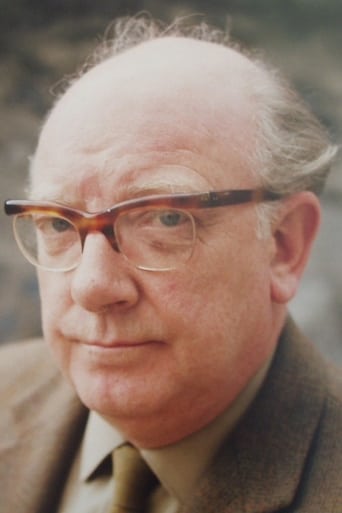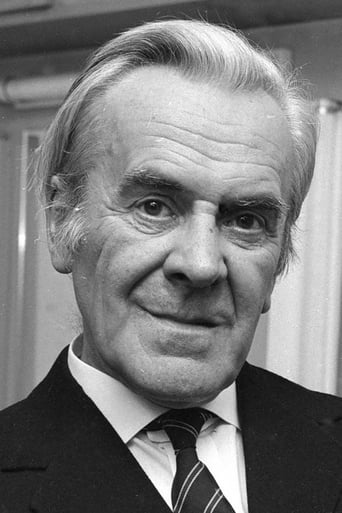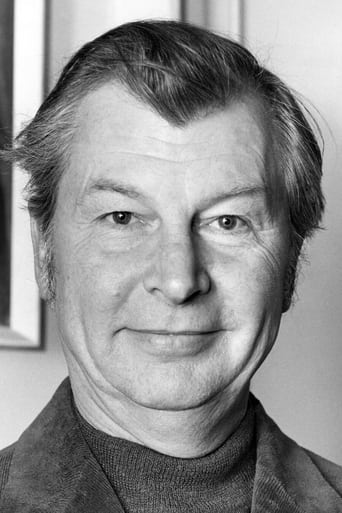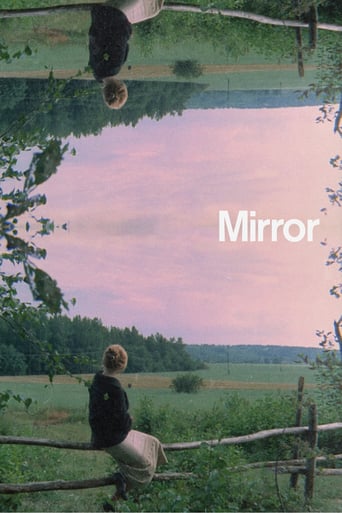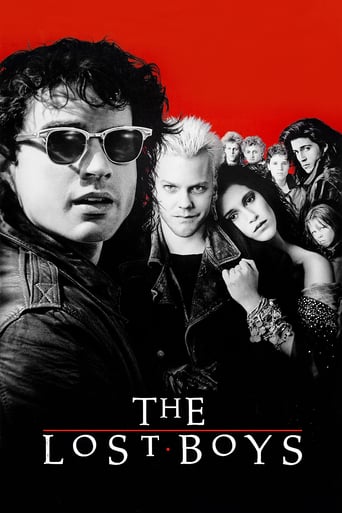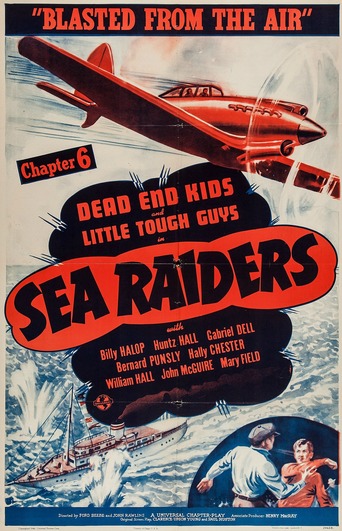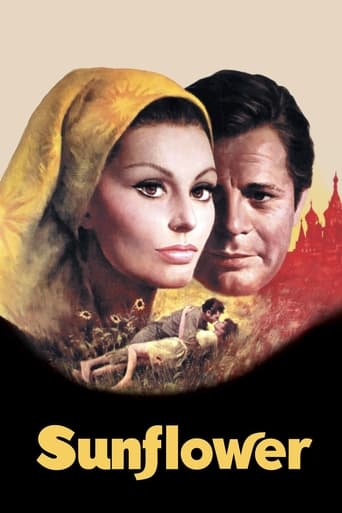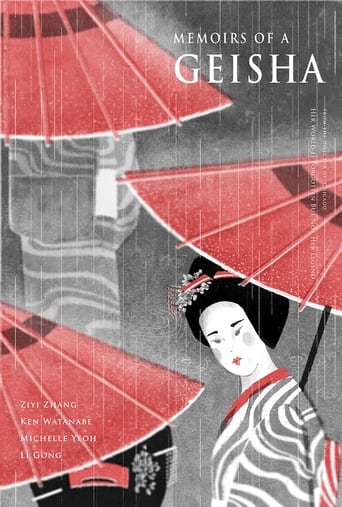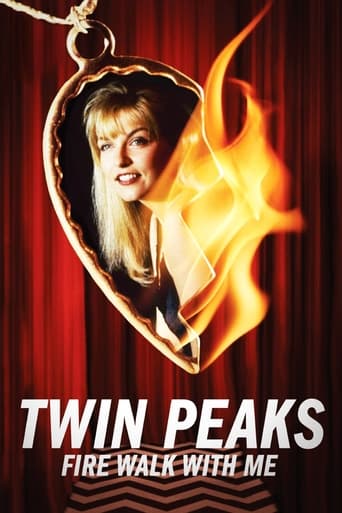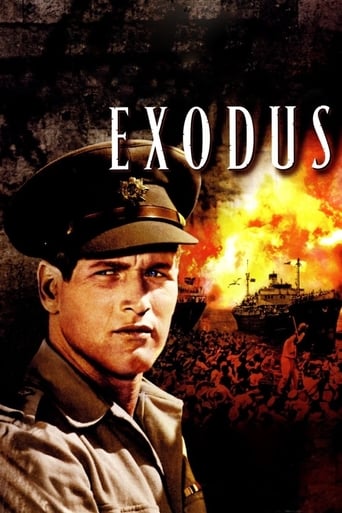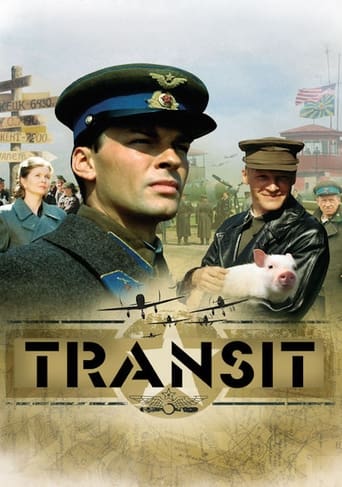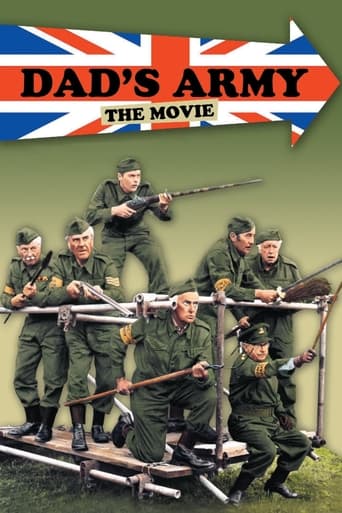
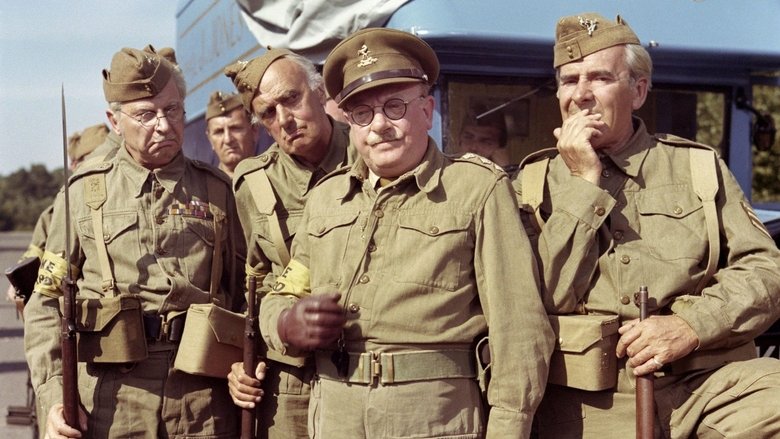
Dad's Army (1971)
Dad's Army was a 1971 feature film based on the BBC television sitcom Dad's Army. Directed by Norman Cohen, it was filmed between series three and four and was based upon material from the early episodes of the television series. The film told the story of the Home Guard platoon's formation and their subsequent endeavours at a training exercise.
Watch Trailer
Cast


Similar titles
Reviews
Based on the BBC comedy that began in 1968 and ran for nine years, this feature released by Cloumbia Pictures is basically a retelling of a few of the early episodes of the series but with a new ending. The TV cast recreate their roles for the big-screen, and as other reviewers have said, it is the best of the spin-off films of British TV comedies of that era. The regular cast are ably supported by some great guests actors, such as the late,great, beloved Bernard Archard as General Fullard, Michael Knowles-who had appeared in the series as military officers, Fred Griffiths as a cheeky steeplejack, Liz Frazer replacing Janet Davies of the TV series, as Mrs Pike and a small but nice role for John Baskcomb as the Mayor of Warmington. Dr Who will remember him for his role in Terror Of The Autons. A lovely recreation of the period is created by Terry Knight art department work and the period feel is enhanced by a wonderful music score from the under-rated Wilfred Burns, who as well as capturing the sound of late 30's/40's dance band also provides dramatic cues and a delightful 'dusk' theme as (SPOILER ALERT) as the Captain, Wilson and Jones ride the General's horse back to camp. The cue is a mixture of the period's slow dance/jazz band and woodwind to evoke a 'Crossing the prairie' feel. There are some beautiful nighttime and day-for-night shots courtesy of Terry Maher's photography. What a shame he did not move into major features.
In my opinion dads army is thee best British sitcom of all time. I believe that if you just watch one episode of the show you cannot judge in completely on that one episode, (this include the movie) You must at least watch a series of this show, get inside the characters, become familiar with there surroundings and the situations which they are in. When you become familiar with the show then it will start appealing to you. Now the movie has a few changes to the series which is slightly disappointing, but it still works. Watch a series or two of the show first before you watch this. You'll not be disappointed. Good episode to watch is "No Spring for Frazer"
"Dad's Army" gets off reasonably lightly here, in view of the old problem British cinema had in adapting popular sitcoms to film in the 1970s. There is a coarsening of the humour, but the historical setting perhaps provides a disincentive to the low-rent ribaldry so beloved of, say, the era's Carry Ons, Confessions..., Frankie Howerd or even Steptoe and Son films.And, contrastingly with Brambell and Corbett, Lowe and Le Mesurier and the rest are restrained, more or less fully in tune with their television portrayals. It is only the often simplified nature of the scriptwriting which impoverishes the characters; they are otherwise present and correct. I feel it was a good decision to re-use the plot of "The Man and the Hour", the series' opening episode, which proves an excellent way to establish the setting, scenario and characters - was this possibly done to help with overseas sales? (I would hazard a bet that it was most successful in Britain overall, which would say a lot...) Such scenes as that of Mainwaring's condescending attitude to the chap in the wireless shop (as they listen to Eden's speech...), and the initial 'interviews' with Jones, Walker etc. stand up as effectively as they did on TV, and are beautifully played.Unfortunately, a glaring error is to actually show the Germans, and mainly as purpose just to point up the plucky 'ingenuity' and 'improvisation' - themes constantly emphasises in the film - of the British Home Guard in comparison with the ruthlessly-planned German army. A contemporary reviewer rightfully mentioned that this robbed the film of the TV series' air of gentle, almost otherworldly fantasy: the Germans are always imagined, and are thus far more serious... and the TV series' focus was on the platoon's world: equally absurd and deadly serious. They are in exactly the same shoes as the older audience, present in the Home Front during WW2, who would never have *seen* actual Germans. The film takes a more 'epic' approach, which makes for a strongly nationalistic tone: most marked in John Burke's novelisation of the film, with its solemn 'and we won' ending.The essential quality of Englishness is beautifully reflected in Godfrey's reading Edward Lear beneath a tree in the pouring rain, and in the use of location filming in the timeless, gorgeous English countryside. Unfortunately, this is double-edged; like the TV series, the 'training manoeuvres' seem just an excuse to get some nice exterior filming. Admittedly, the humour of these scenes might appeal to some, and some of the stalwart actors manage to raise laughs in me, but overall, the long section in the middle of the film is just padding between the cogent bits. The ending in the church is terribly low-key, but fittingly in the sense of the 'stiff upper lip' heroism the film is celebrating - heroism always with a touch of the amateurish and absurd. I don't particularly like the ears-to-the-ground final scene, mind; they should have ended with the blissfully English 'going about business' routine of the platoon in civilian life: Mainwaring passing them on the street.How can I quite summarise my feelings? While much of what I dislike is distilled in the unfortunate 'comedic' musical score, which particularly punctuates the 'training exercise' scenes, the score also contains a lyrical passage when Mainwaring and Wilson speak in silhouette against a wistful sunset:Wilson. It's a beautiful sunset, sir. MAINWARING. It's a beautiful land, Wilson...This film maintains the level of acting seen in the original series, and it makes an admirable attempt to be consciously cinematic. Yes, the focus on Englishness is fairly simplistic, and the scripting notably less subtle, but at least the key elements are in harmony: characters, landscape and theme. It is overall a good encapsulation of the bumbling tenacity and inherent madness of the British; the ridiculous 'messing around' in a sublime countryside, and somehow pulling through to save the 'beautiful land' and its values, against the Nazi threat.
Often when TV series are transferred to the big screen, they lose their appeal. Not in this case! The historical accuracy in costumes, equipment and general art direction, like the TV series, is outstanding. A good example of comedy and farce, with excellent script and comedy actors in the right parts. Based on a classic TV series that stands alone in British TV Comedy history.


